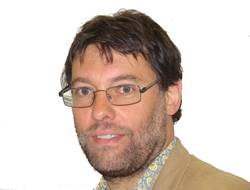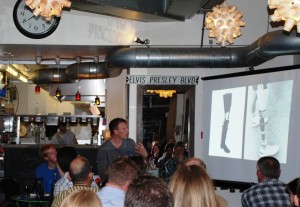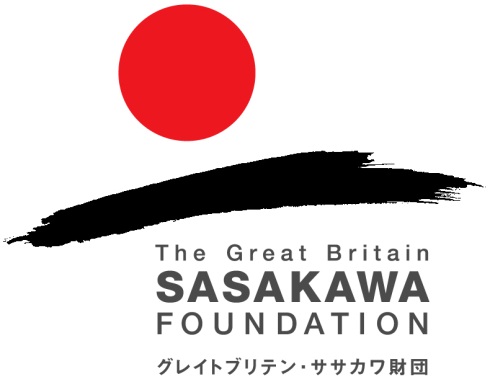This interesting talk will take place next Wednesday the 5th of December, 16:00-17:00 at P302.
Our external guest is Dr Michalis Mavrovouniotis from the University of Leicester, an specialists in evolutionary algorithms, ant colony optimization, memetic computation and dynamic optimization.
Dr Mavrovouniotis will discuss very recent advances in nature-inspired computational intelligence. These ideas have also relevant implications for optimization problems, knowledge transfer and meta-learning; thus I think may be of great interest of many students, PhD candidates and senior researchers of the three centres in our school.
Abstract: In the last decade, there is a growing interest to apply nature-inspired metaheuristics in optimization problems with dynamic environments. Usually, dynamic optimization problems (DOPs) are addressed using evolutionary algorithms. Recently, ant colony optimization (ACO) algorithms proved that they are also good methods to address DOPs.
However, conventional ACO algorithms have difficulty in addressing DOPs. This is because once the algorithm converges to a solution and a dynamic change occurs, it is difficult for the population to adapt to a new environment since high levels of pheromone will be generated to a single trail and force the ants to follow it even after a dynamic change. A good solution to address this problem is to increase the diversity of solutions via transferring knowledge from previous environments to the pheromone trails of the new environment.
Best wishes, Emili
Emili Balaguer-Ballester, PhD
School of Engineering & Computing, Bournemouth University
Center for Computational Neuroscience, University of Heidelberg








 Congratulations to
Congratulations to  Dr Reddy commented ‘the small grant from the Great Britain Sasakawa Foundation will hugely help me to investigate the Japanese tsunami impacts on tourism and develop local collaboration with researchers in Japan for in-depth research’. Dr Reddy is a member of
Dr Reddy commented ‘the small grant from the Great Britain Sasakawa Foundation will hugely help me to investigate the Japanese tsunami impacts on tourism and develop local collaboration with researchers in Japan for in-depth research’. Dr Reddy is a member of 












 SPROUT: From Sustainable Research to Sustainable Research Lives
SPROUT: From Sustainable Research to Sustainable Research Lives BRIAN upgrade and new look
BRIAN upgrade and new look Seeing the fruits of your labour in Bangladesh
Seeing the fruits of your labour in Bangladesh Exploring Embodied Research: Body Map Storytelling Workshop & Research Seminar
Exploring Embodied Research: Body Map Storytelling Workshop & Research Seminar Marking a Milestone: The Swash Channel Wreck Book Launch
Marking a Milestone: The Swash Channel Wreck Book Launch ECR Funding Open Call: Research Culture & Community Grant – Application Deadline Friday 12 December
ECR Funding Open Call: Research Culture & Community Grant – Application Deadline Friday 12 December MSCA Postdoctoral Fellowships 2025 Call
MSCA Postdoctoral Fellowships 2025 Call ERC Advanced Grant 2025 Webinar
ERC Advanced Grant 2025 Webinar Update on UKRO services
Update on UKRO services European research project exploring use of ‘virtual twins’ to better manage metabolic associated fatty liver disease
European research project exploring use of ‘virtual twins’ to better manage metabolic associated fatty liver disease